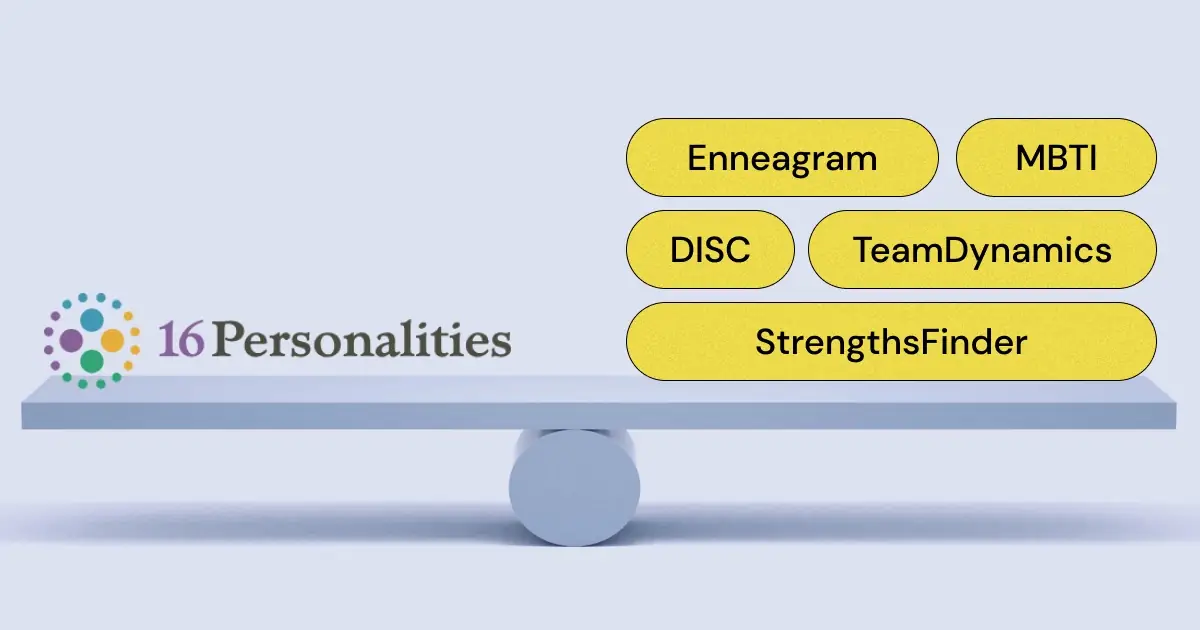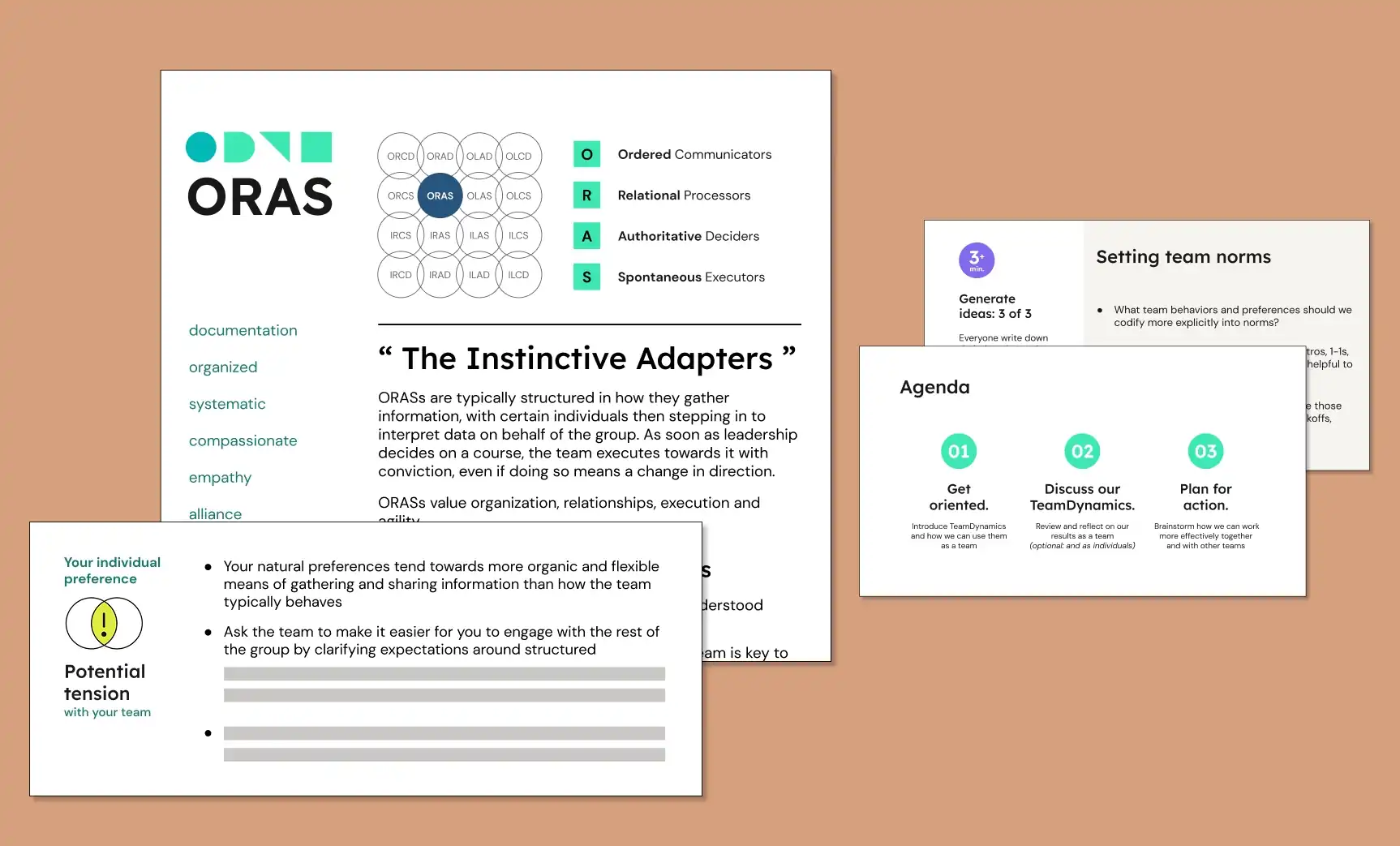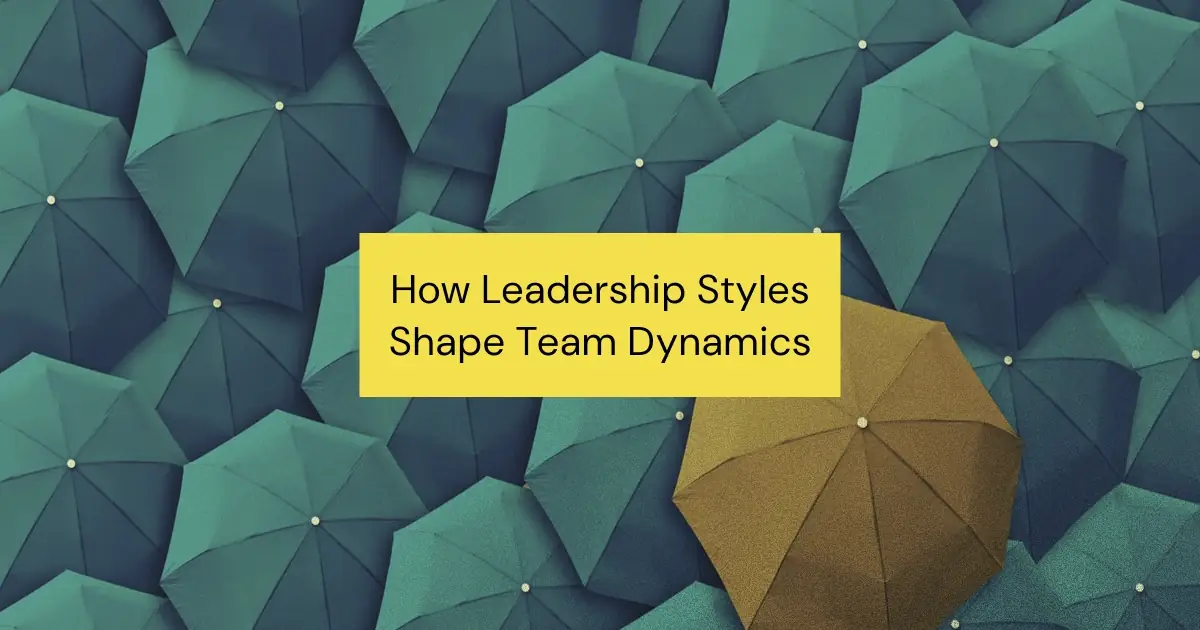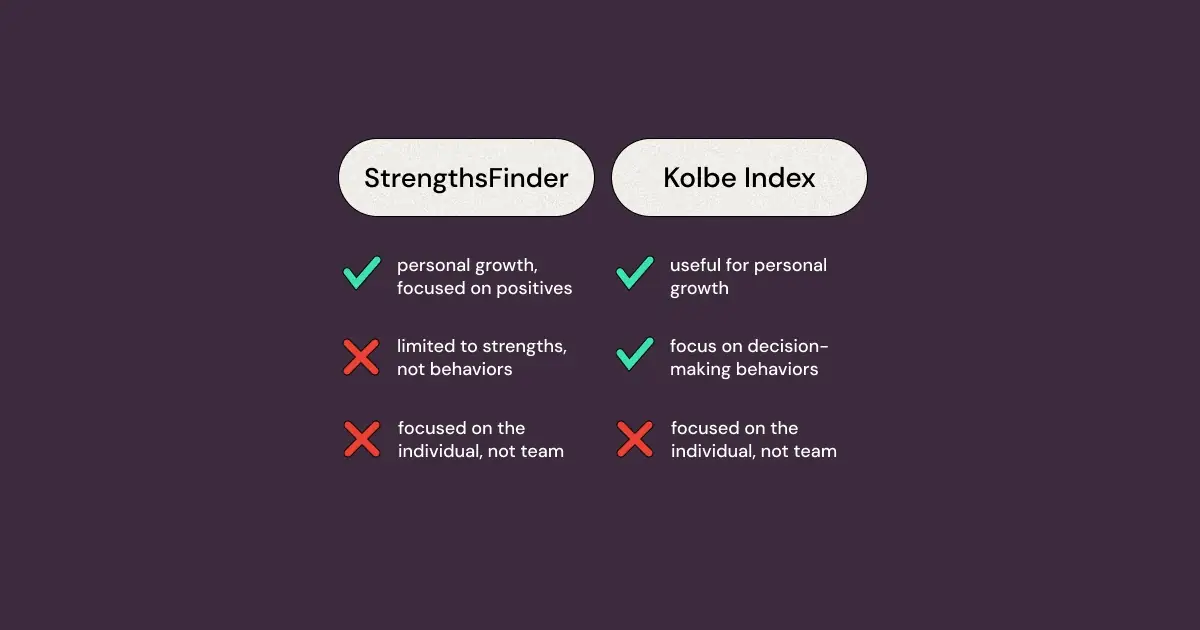When it comes to personality tests, 16Personalities is a go-to choice for many. It’s popular for its detailed insights, cute illustrations, whimsical personality type names, and affordability. 16Personalities combines the Big Five personality traits with the familiar output of the Myers-Briggs Type Indicator (MBTI) into a system 16Personalities calls NERIS. However, it’s not the only option out there. If you’re looking for something different (and maybe better), there are several great alternatives that might better suit your needs.
In this post, we’ll explore five of the best alternatives to 16Personalities: Enneagram, TeamDynamics, Big Five, StrengthsFinder, and DiSC. Each of these tests offers unique features and benefits, whether you’re aiming to boost personal growth, improve team dynamics, or enhance professional development. Let’s dive in and find the perfect personality test for you!
Alternative #1: Enneagram
The Enneagram provides a deeper dive into motivations and personal growth. If you’re interested in understanding the “why” behind your behaviors and improving your emotional intelligence, the Enneagram is a great alternative to 16Personalities.
The Enneagram is a personality test that identifies nine distinct personality types. Each type represents a specific worldview and set of motivations, helping individuals understand their behaviors, strengths, and challenges. The nine types are interconnected, showing how people can grow and change over time.
What Makes Enneagram Special
The Enneagram stands out because it goes beyond just categorizing traits. It delves into core motivations and fears, providing a deeper understanding of why people think and act the way they do. This makes it a powerful tool for personal growth, as it encourages self-awareness and emotional intelligence. The Enneagram also emphasizes the dynamic nature of personality, showing how individuals can evolve and develop healthier behaviors.
Enneagram vs. 16Personalities
While 16Personalities combines Big Five traits with MBTI-like outputs to give a snapshot of personality, the Enneagram offers a more nuanced and in-depth exploration of motivations and fears. 16Personalities provides detailed descriptions and easy-to-read results, making it accessible and straightforward. In contrast, the Enneagram offers insights into personal development and relational dynamics. If you’re looking for a test that helps you understand not just what you do but why you do it, the Enneagram might be a better fit.
Want to use the Enneagram for team building? Check out our free Enneagram team building download!
Practical Applications of Enneagram
The Enneagram is widely used for personal development, coaching, and therapy. It helps individuals identify areas for growth and understand how their personality affects their relationships and work. In professional settings, the Enneagram can improve team dynamics by helping team members understand each other’s motivations and communication styles. It’s also used in leadership development to enhance emotional intelligence and empathy.
Alternative #2: TeamDynamics
While 16Personalities provides a solid understanding of individual traits, TeamDynamics offers a comprehensive look at team interactions and behaviors. If your goal is to improve team performance and foster a collaborative work environment, TeamDynamics is an excellent alternative to 16Personalities.
TeamDynamics is a team personality test designed to evaluate a team’s collective behaviors and how individual preferences align (or not) with team norms. It focuses on understanding team dynamics, identifying strengths and weaknesses, and improving overall team performance. This makes it especially useful in professional environments where collaboration and communication are key.
What Makes TeamDynamics Special
TeamDynamics stands out because it doesn’t just assess individual traits; it looks at the bigger picture of how a team functions together. It provides insights into team roles, communication styles, and potential areas of conflict or synergy. This focus on the collective behavior of a team makes it an excellent tool for team building and improving workplace dynamics. By understanding how different personalities interact, teams can work more cohesively and effectively.
Want to see what TeamDynamics offers? Download a preview of TeamDynamics today!
TeamDynamics vs. 16Personalities
While 16Personalities offers a detailed analysis of individual personality traits, it is primarily focused on personal insights. TeamDynamics, on the other hand, is designed for team settings, evaluating both individual and collective behaviors. 16Personalities is great for personal development and self-awareness, but if your goal is to enhance team performance and understand how team members can best collaborate, TeamDynamics is a better choice. It provides actionable insights that can help improve team communication, resolve conflicts, and leverage individual strengths for the benefit of the team.
Practical Applications of TeamDynamics
TeamDynamics is ideal for professional environments where teamwork is essential. It can be used in team-building exercises, leadership development, and conflict resolution. Managers can use it to identify the best ways to motivate their teams, align individual goals with team objectives, and create a more harmonious work environment. By understanding the dynamics at play within their teams, leaders can make informed decisions that enhance productivity and job satisfaction.
{{inline-cta}}
Alternative #3: Myers-Briggs Type Indicator (MBTI)
MBTI, with its rich history and detailed framework, provides a more comprehensive analysis of personality than 16Personalities. If you’re looking for a trusted, in-depth personality assessment, MBTI is a great choice. For a quicker, more user-friendly experience, 16Personalities is an excellent alternative.
The Myers-Briggs Type Indicator (MBTI) is one of the most well-known and widely used personality assessments. It categorizes people into 16 personality types based on four dichotomies: Extraversion/Introversion, Sensing/Intuition, Thinking/Feeling, and Judging/Perceiving. Each type provides insights into how individuals perceive the world and make decisions.
What Makes MBTI Special
MBTI is unique because it has a long history of use in both personal and professional development. It offers a structured framework for understanding personality differences and how these differences can impact communication, work styles, and relationships. MBTI’s extensive research base and widespread application make it a trusted tool for many individuals and organizations.
Want to use MBTI for team building? Check out our free MBTI team building workshop download!
MBTI vs. 16Personalities
While 16Personalities is inspired by MBTI, combining elements of the Big Five traits with MBTI-like outputs, it aims to make the concepts more accessible and user-friendly. Both tests categorize individuals into 16 types, but 16Personalities includes modern interpretations and practical insights that are easy to understand. MBTI, on the other hand, provides a more traditional and detailed approach to personality typing. If you prefer a test with a long-standing reputation and a more in-depth analysis, MBTI might be the better choice. However, if you want a quick, engaging, and straightforward assessment, 16Personalities is an excellent alternative.
Practical Applications of MBTI
MBTI is commonly used in career counseling, team building, and personal development. It helps individuals understand their strengths, work preferences, and potential career paths. In professional settings, MBTI can improve team dynamics by helping team members appreciate and leverage their diverse personality types. It’s also used in leadership training to enhance communication and decision-making skills.
Alternative #4: DISC Assessment
16Personalities offers a detailed and introspective look at personality traits, making it great for personal growth and self-awareness. DiSC provides practical, actionable insights into behavior and communication, making it ideal for improving workplace dynamics and team performance. If you’re looking for a tool to enhance professional relationships and teamwork, DiSC is an excellent alternative to 16Personalities.
The DiSC personality test categorizes individuals into four four main personality styles: Dominance, Influence, Steadiness, and Conscientiousness. Each style represents a unique way of interacting with others and approaching tasks. DiSC is widely used in workplace settings to improve communication, teamwork, and productivity.
What Makes DiSC Special
DiSC stands out because of its simplicity and practical application in the workplace. It focuses on observable behaviors and interaction styles, making it easy to understand and implement. DiSC helps individuals and teams understand their communication preferences and how they can adapt to work more effectively with others. This makes it an invaluable tool for improving workplace dynamics and fostering a collaborative environment.
Want to use DiSC for team building? Check out our free DiSC team communication workshop download!
DiSC vs. 16Personalities
While 16Personalities provides a comprehensive overview of personality traits based on a combination of Big Five traits and MBTI-like outputs, DiSC zeroes in on behavior and interaction styles. 16Personalities offers detailed insights into various aspects of personality, making it suitable for personal development and self-awareness. DiSC, on the other hand, is more focused on practical applications in professional settings, helping teams understand how to communicate and collaborate better. If your goal is to enhance workplace communication and team performance, DiSC might be a better fit compared to the more introspective approach of 16Personalities.
Practical Applications of DiSC
DiSC is commonly used in team-building exercises, leadership development, and conflict resolution. It helps individuals understand their own behavior patterns and how they can adjust their communication style to work more effectively with others. Managers use DiSC to build stronger, more cohesive teams by aligning individual strengths with team objectives. It’s also valuable for improving customer service and sales by tailoring interactions to different personality styles.
Alternative #5: StrengthsFinder (aka Gallup CliftonStrengths)
StrengthsFinder provides a targeted approach to identifying and developing strengths, making it ideal for professional development and maximizing potential. If you want to focus on understanding and leveraging your strengths, StrengthsFinder is an excellent alternative to 16Personalities.
StrengthsFinder, also known as CliftonStrengths, is a personality assessment that focuses on identifying and developing an individual’s top strengths. It categorizes these strengths into 34 distinct themes, which are further grouped into four domains: Executing, Influencing, Relationship Building, and Strategic Thinking. The goal of StrengthsFinder is to help individuals maximize their potential by leveraging their unique strengths.
What Makes StrengthsFinder Special
StrengthsFinder is unique because it emphasizes strengths rather than weaknesses. This positive approach encourages individuals to focus on what they do best, fostering personal and professional growth. The test provides actionable insights into how individuals can use their strengths in various aspects of life, including career, relationships, and personal development. This strengths-based perspective helps individuals become more engaged and productive.
Want to use StrengthsFinder for team building? Check out our free CliftonStrengths team building workshop download!
StrengthsFinder vs. 16Personalities
While 16Personalities combines elements of the Big Five traits with MBTI-like outputs to provide a broad overview of personality, StrengthsFinder zeroes in on identifying and enhancing individual strengths. 16Personalities is great for understanding various aspects of personality, making it suitable for personal development and self-awareness. StrengthsFinder, however, focuses specifically on what individuals do best, offering targeted strategies to maximize these talents. If you’re looking for a tool that highlights your strengths and provides practical ways to develop them, StrengthsFinder is the better choice. For a more general understanding of your personality traits, 16Personalities is an excellent option.
Practical Applications of StrengthsFinder
StrengthsFinder is widely used in professional development, coaching, and team-building. It helps individuals discover their top strengths and how to apply them effectively in their careers. Organizations use StrengthsFinder to build high-performing teams by aligning roles with individuals’ strengths. It also aids in leadership development, helping leaders understand their strengths and how to use them to inspire and motivate their teams. By focusing on strengths, teams can achieve higher levels of engagement and productivity.
Comparing the Top 5 Alternatives to 16Personalities
So which of these leading alternatives to 16Personalities is right for you and your team? Take a look at this comparison table to find out!
| Tool |
Primary Focus |
Pricing |
Best For |
Key Strengths |
| Enneagram |
Motivations and Fears |
Typically Free/One-time Payment |
Personal growth and emotional intelligence |
Nine personality types, deeper motivation insights |
| TeamDynamics |
Team Synergy and Dynamics |
One-time Payment |
Teams focused on collaboration and performance |
Assesses collective team behavior, ideal for team building |
| Myers-Briggs Type Indicator (MBTI) |
Personality Preferences |
One-time Payment |
Individual self-awareness and personal growth |
16 personality types, trusted for personal insights |
| DiSC Assessment |
Behavior and Communication Styles |
Subscription/One-time Payment |
Improving workplace communication and behavior |
Clear, practical, focused on interaction styles |
| StrengthsFinder (Gallup CliftonStrengths) |
Individual Strengths |
One-time Payment |
Personal and professional development |
34 talent themes, strength-based development |
Conclusion
Choosing the right personality test can significantly impact personal development and team dynamics in the workplace. We’ve explored five popular alternatives to 16Personalities: Enneagram, StrengthsFinder, TeamDynamics, MBTI, and DiSC. Each of these tests offers unique benefits and insights.
- Enneagram dives deep into core motivations and fears, making it a great tool for personal growth and emotional intelligence.
- StrengthsFinder focuses on identifying and developing individual strengths, helping people maximize their potential.
- MBTI provides a comprehensive framework for understanding personality types, with a long history of use in both personal and professional development.
- DiSC offers practical, actionable insights into behavior and communication, improving workplace interactions and team dynamics.
While all these tests have their merits, TeamDynamics stands out as the best choice for most workplace settings. Unlike 16Personalities, which focuses on individual traits, TeamDynamics evaluates team dynamics and how individual preferences align with team norms. This makes it an invaluable tool for building stronger, more cohesive teams.
In professional environments where collaboration and communication are key, TeamDynamics helps managers understand how teams can work together effectively. It provides actionable insights that can improve team performance, resolve conflicts, and enhance overall productivity. By focusing on both individual and collective behaviors, TeamDynamics ensures that everyone can contribute their best to the team’s success.
If you’re looking to foster a collaborative, high-performing workplace, TeamDynamics is the ideal choice. Ready to see how TeamDynamics can transform your team? Try TeamDynamics today and see how it can unlock your team’s full potential.


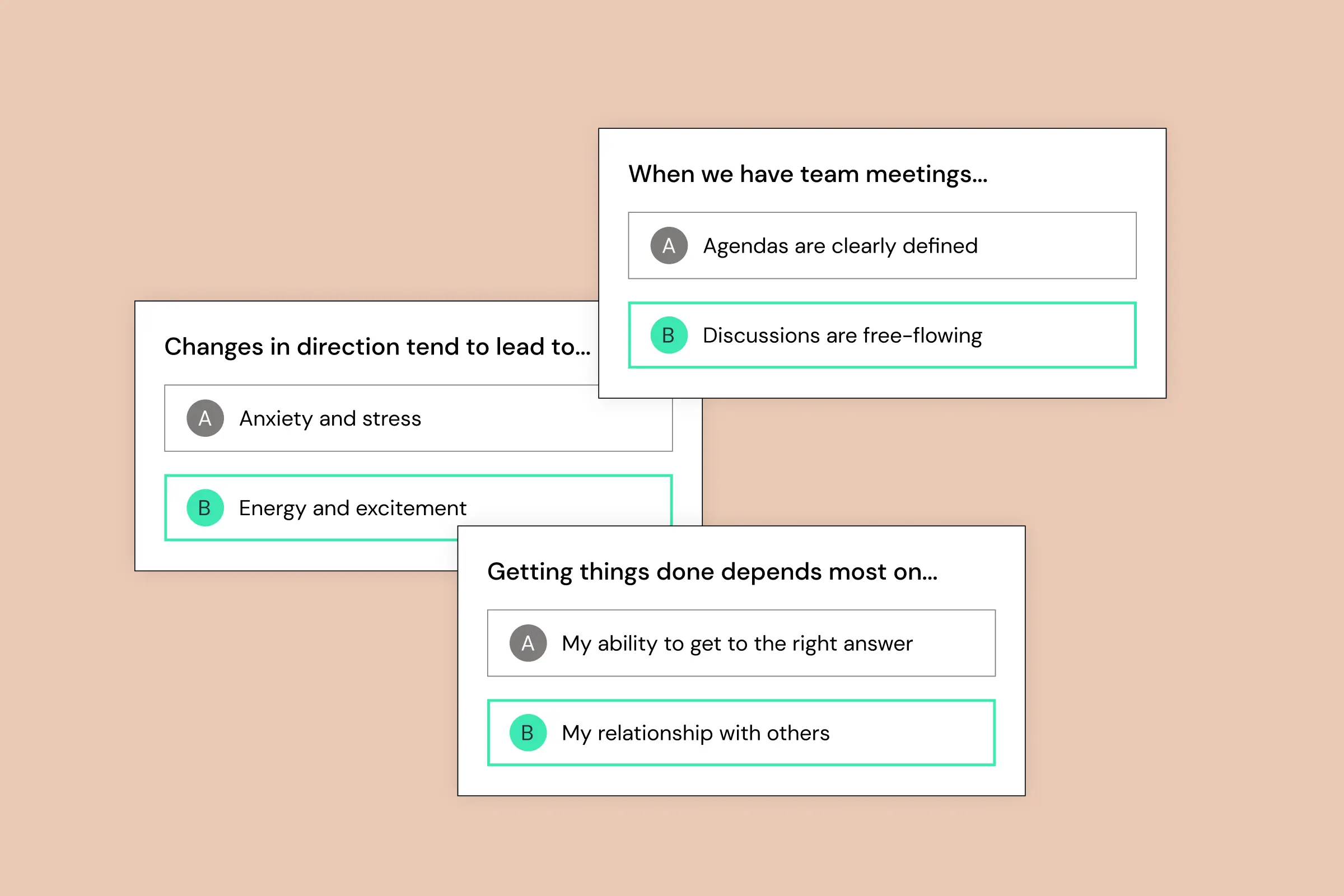

.png)
